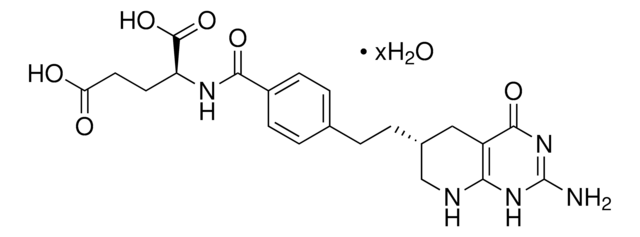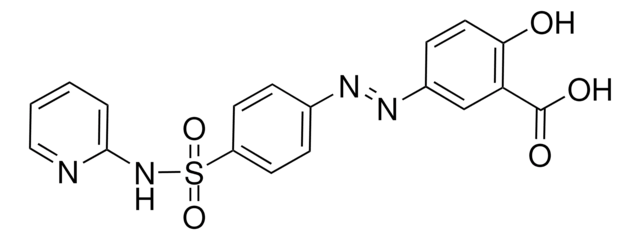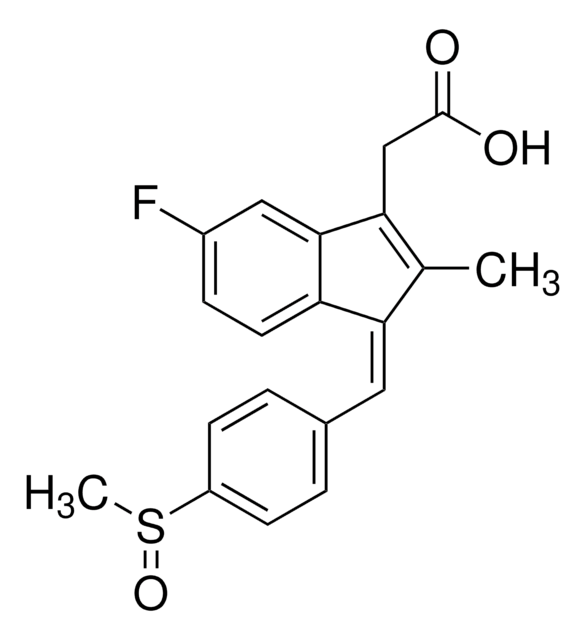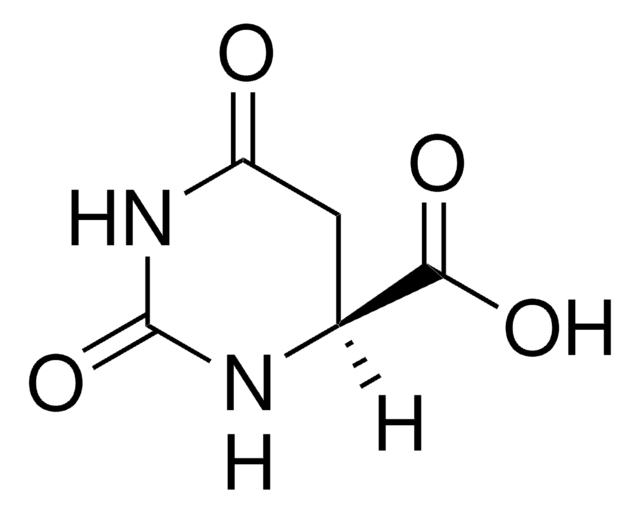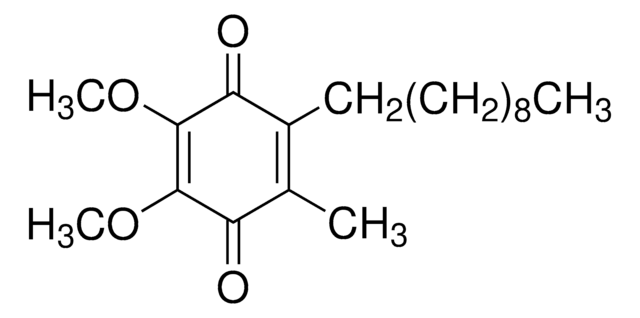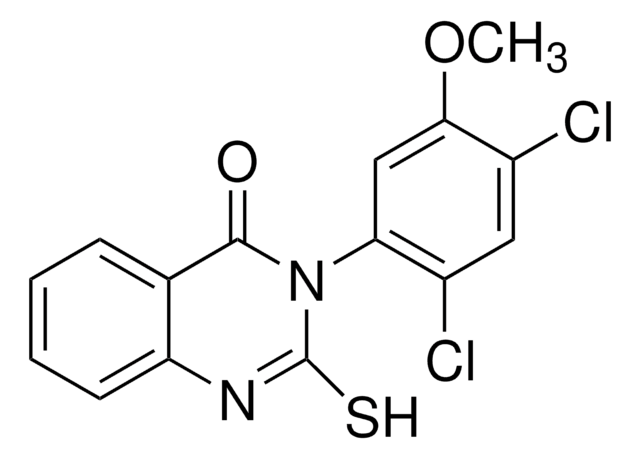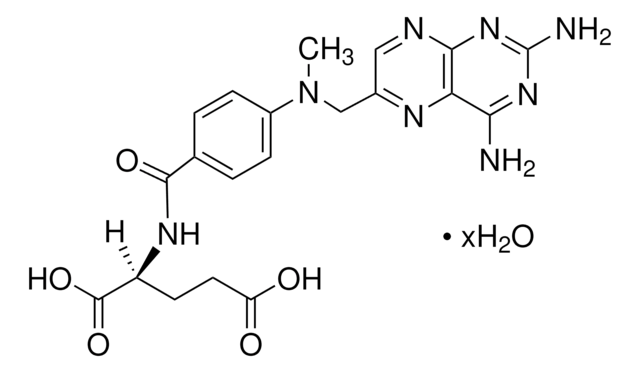L5025
Leflunomide
Immunosuppressant
Synonym(s):
5-Methylisoxazole-4-(4-trifluoromethyl)carboxanilide
About This Item
Recommended Products
Quality Level
Assay
≥98% (TLC)
form
powder
mp
166.5 °C
solubility
methanol: 19.60-20.40 mg/mL, clear, colorless to faintly yellow
Mode of action
enzyme | inhibits
storage temp.
2-8°C
SMILES string
Cc1oncc1C(=O)Nc2ccc(cc2)C(F)(F)F
InChI
1S/C12H9F3N2O2/c1-7-10(6-16-19-7)11(18)17-9-4-2-8(3-5-9)12(13,14)15/h2-6H,1H3,(H,17,18)
InChI key
VHOGYURTWQBHIL-UHFFFAOYSA-N
Gene Information
human ... DHODH(1723)
Looking for similar products? Visit Product Comparison Guide
Application
Biochem/physiol Actions
Signal Word
Danger
Hazard Statements
Precautionary Statements
Hazard Classifications
Acute Tox. 3 Oral - Eye Irrit. 2 - Skin Irrit. 2 - STOT SE 3
Target Organs
Respiratory system
Storage Class Code
6.1C - Combustible acute toxic Cat.3 / toxic compounds or compounds which causing chronic effects
WGK
WGK 1
Flash Point(F)
Not applicable
Flash Point(C)
Not applicable
Personal Protective Equipment
Choose from one of the most recent versions:
Already Own This Product?
Find documentation for the products that you have recently purchased in the Document Library.
Customers Also Viewed
Our team of scientists has experience in all areas of research including Life Science, Material Science, Chemical Synthesis, Chromatography, Analytical and many others.
Contact Technical Service


